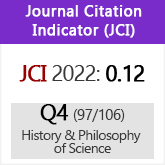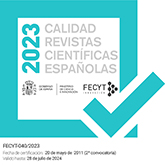The John Locke’s Ars Medica essay, and the influence of his medical ideas on the empirical philosophy
DOI:
https://doi.org/10.3989/asclepio.2014.13Keywords:
Empiricism, Sydenham´s medicine, Semiotics, Epistemology, Certainty and Probability of ScienceAbstract
John Locke’s essay Ars medica of 1669, is presented, analyzed and translated into Spanish. This essay shows the medical problems that prompted Locke´s philosophy and provides essential clues to understanding the motives, aims and characteristics of the empiricist`s theory of knowledge. Ideas originated in medicine that profoundly influenced subsequent Locke`s works were: 1) Trust in the perfectibility of science and elucidation of the role that philosophical thinking could play. 2) Rejection of knowledge deduced from principles, hypotheses or maxims. 3) Reliance on a «plain historical method» for the production of knowledge, which tried to register facts descriptively, while abandoning the study of ultimate causes. 4) Use of a three-part classification of the sciences that enthrones semiotics, medical science par excellence, and defines it as a mere knowledge of the signs of things, that is not intended to discern either essences or substances. Locke, in his epistemology, applies to all scientific knowledge the medical theory of the signs of illnesses. He envisions all possible science as a mere descriptive knowledge of signs; and thinks that knowledge is probabilistic, analogous and pragmatic.
Downloads
References
Aaron R.I. and Gibb, Jocelyn (1936), An early draft of Locke's Essay, Oxford, Clarendon Press.
Anstey, Peter and Burrows, John (2009), "John Locke, Thomas Sydenham, and the Authorship of Two Medical Essays", Electronic British Library Journal, 3, pp.1-42.
Aspelin, Gunnar (1949), "Locke and Sydenham", Theoria, 15, 29-37. http://dx.doi.org/10.1111/j.1755-2567.1949.tb00137.x
Bacon, Francis (1985), La Gran Restauración. «Novum Organum", Madrid, Alianza, Bates, Donald (1977), "Sydenhan and the medical meaning of method", Bulletin of the History of Medicine, 51, 324-38.
Boyle, Robert (1680). The Sceptical chymist (2ª ed.) «Experiments and notes". Oxford. (Traducción castellana: (2012) El químico escéptico, Barcelona, Crítica.
de Beer, E.S. (Ed.) (de 1976 á 1989), The Correspondence of John Locke, in eight volumes, Oxford, Clarendon Press.
Dewhurst, Kenneth (1966), Dr. Thomas Sydenham (1624-1689). His Life and Original Writings, Berkeley, University of California Press.
Duchesneau, François (1973), L'empirisme de Locke, La Haya, Martinus Nijhoff. PMid:4711643
Edelstein, Ludwig (1967), Ancient Medicine, Selected papers of Ludwig Edelstein, Baltimore, The Johns Hopkins Press. PMCid:PMC1842256
Fox Burne, Henry Richard (1969), The Life of John Locke, Aalen, Scientia Verlag, (Reimpr. de la edición de Londres, (1876).
Harrison, J. & Laslett, P. (1965), The Library of John Locke, Oxford, The Oxford University Press.
Hipócrates, (1962) "De l'ancienne médecine". Opera Omnia (Littré), Amsterdam. Adolf M. Hakkert.
Kretzmann, N. (1981), "La tesis principal de la teoría semántica de Locke". En: Locke y el entendimiento humano, I.C. Tipton (ed), México, Fondo de Cultura Económica, pp. 225-256.
Laín Entralgo, Pedro (1961), La historia clínica, Barcelona, Salvat.
Locke, John (1823), The works of John Locke, in ten volumes. London, printed By Thomas Tegg. Reprinted in 1963, in Aalen, by Scientia Verlag.
Meynell, Guy (1994), Locke as author of Anatomia and De arte medica, York, University of York.
Meynell, Guy (2006), "John Locke and the Preface to Thomas Sydenham`s Observationes Medicae", Medical History, 50. pp. 93-110. http://dx.doi.org/10.1017/S0025727300009467 PMid:16502873 PMCid:PMC1369015
Romanell, Patrick (1958), "Locke and Sydenham: A Fragment on Smallpox (1670)" Bulletin of the History of Medicine, 32, pp. 293-321. PMid:13573007
Romanell, Patrick (1984), John Locke and Medicine. A new Key to Locke, Prometheus Books, Nueva York.
Sánchez González, Miguel Ángel (1986), "Especie morbosa y filosofía empirista en el siglo XVII", Asclepio, 38, pp.159-176.
Sánchez González, Miguel Ángel (1987), La presencia de la Medicina en la obra de John Locke, Madrid, Editorial de la Universidad Complutense.
Sánchez González, Miguel Ángel (1988) "Las ideas antianatómicas y antimicroscópicas de Thomas Sydenham", Asclepio, 40, pp.223-63.
Sánchez González, Miguel Ángel (1990), "Medicine in John Locke's Philosophy", The Journal of Medicine and Philosophy, 15, pp. 675-695. http://dx.doi.org/10.1093/jmp/15.6.675 PMid:2290077
Sánchez González, Miguel Ángel (2009), Thomas Sydenham y John Locke: Ensayo sobre la anatomía, Oviedo, KRK.
Sydenham, Thomas (1848), The Works of Thomas Sydenham, Latham, R.G. (tr.), London, The Sydenham Society.
Walmsley, Jonathan Craig, (1998), John Locke’s Natural Philosophy, Thesis for the degree of Doctor of Philosophy, London, King`s College.
Published
How to Cite
Issue
Section
License
Copyright (c) 2014 Consejo Superior de Investigaciones Científicas (CSIC)

This work is licensed under a Creative Commons Attribution 4.0 International License.
© CSIC. Manuscripts published in both the printed and online versions of this Journal are the property of Consejo Superior de Investigaciones Científicas, and quoting this source is a requirement for any partial or full reproduction.All contents of this electronic edition, except where otherwise noted, are distributed under a “Creative Commons Attribution 4.0 International” (CC BY 4.0) License. You may read here the basic information and the legal text of the license. The indication of the CC BY 4.0 License must be expressly stated in this way when necessary.
Self-archiving in repositories, personal webpages or similar, of any version other than the published by the Editor, is not allowed.















